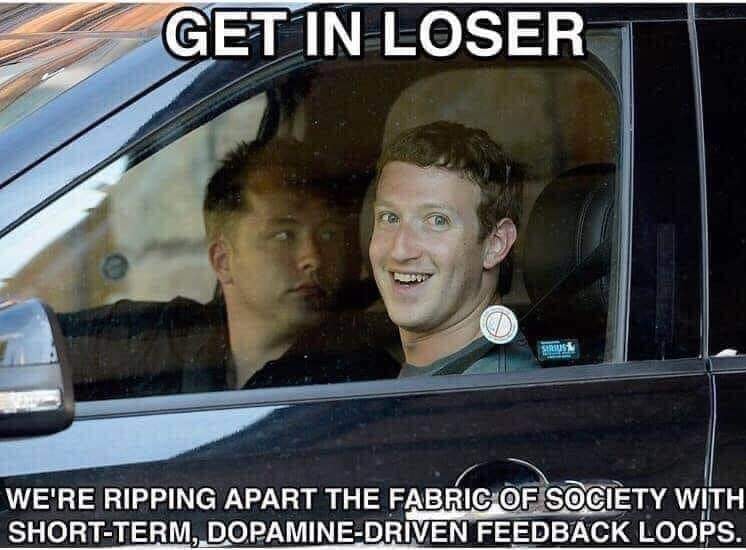The political power that Silicon Valley and Big Tech pushed over this election is a real #geekproblem threat, with the #dotcons leveraging technological and financial influence to shape society in ways that benefit the nasty few and undermine basic democratic paths we need to be fallowing to mediate #climatechaos
One path to balance this #mainstreaming mess making is the need for active and healthy critiques of the lack of institutional support for #openweb projects and paths that focus on humanistic alternatives to these Big Tech platforms. The problem we need to challange is that organizations theoretically supportive of democratic values, such as #NLNet and #NGI, sideline core “native” paths in tech as “too radical”, instead favouring safe narrow #geekproblem and #NGO tech paths which we know do not work. This is frustrating, and with the increasing authoritarianism spreading worldwide, it’s a part of the #deathcult we all worship.

The “geekproblem” in tech is about challenges arising from the culture and mindset within technical communities, particularly around developers and engineers. It is associated with an overemphasis on technical solutions, insularity, and a tendency to prioritize technological efficiency or novelty over broader social and ethical considerations.
- Overemphasis on Technical Solutions: People involved in tech prioritize creating or improving technical features while overlooking social impacts or peoples needs. This leads to “solutionism,” where every problem is assumed to have a tech-based answer, neglecting simpler, social, or policy-based solutions.
- Insularity and Group Think: The tech world is insular, with tight-knit subcultures that resist input from outside communities and dismiss perspectives that don’t align with technical paths. This leads to narrow solutions and a resistance to the needer wider perspectives, ultimately #blocking the social change and challenge we need.
- Focus on Control over Collaboration: Tech communities are often defacto hierarchical, top-down in the paths of design and governance, leading to a “we know best” paths. This often alienates non-technical people and discourages cooperative and participatory input, making it hard to integrate open, community-based governance in to the narrow paths that are imposed.
- Ignoring and Dismissing Social Issues: Focused on technical work overlook social issues the tech is supposed to be addressing and solving. By focusing only on engineering, they overlook who has access to the technology, who benefits from it, and what ethical implications it brings, perpetuating the disconnect between technology and the communities it made for.
- Resistance to Broadening Perspective: Tech creators actively resist moving beyond their own narrow areas of expertise and interest, they block ideas and initiatives that don’t fit within their immediate understanding, inhibiting growth and the needed experimentation. This resistance limits meaningful progress, community needs, and alternative technologies.
In sum, the #geekproblem stems from a blend of narrow technical focus, resistance to diverse input, and lack of attention to social impact. Addressing it involves building more inclusive, collaborative, and socially aware tech paths that embrace #4opens broader perspectives beyond the purely technical.
We now need to compost these piles of #techshit
